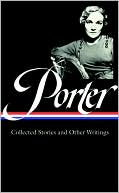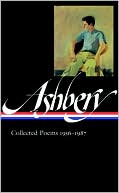Okay, so I finally bought myself a copy of Madness, Rack and Honey, the collected lectures of Mary Ruefle out from Wave Books. Full disclosure: I haven't finished it yet. I'm not adding my voice to the wide praise and acclaim it has received from all over, including the NYT Book Review, and the Kenyon Review. Ruefle is a gift. For now, I just want to talk about the second essay in the collection, a lecture she gave on poetry and the moon.
 Let's start with my own story about poems and stones--- "The moon is a stone that floats," writes Mark Strand in a chapbook titled Chicken, shadow, moon & more. I want to say that I once stumbled upon the book, that it's readily available, but, in fact, it's a tough find. I requested it through interlibrary loan for my undergrad senior thesis. If you ever chance upon it, or have time to bug your favorite librarian, I strongly urge you to get it. (And gift it to me!) So this book, like a philosophical Dr. Seuss, says, "The moon is a stone that floats."
Let's start with my own story about poems and stones--- "The moon is a stone that floats," writes Mark Strand in a chapbook titled Chicken, shadow, moon & more. I want to say that I once stumbled upon the book, that it's readily available, but, in fact, it's a tough find. I requested it through interlibrary loan for my undergrad senior thesis. If you ever chance upon it, or have time to bug your favorite librarian, I strongly urge you to get it. (And gift it to me!) So this book, like a philosophical Dr. Seuss, says, "The moon is a stone that floats." I'm floored by this. In Charles Simic's notebooks---all the bizarre bits of childhood and dirty bits of politics that you'd imagine in the poet's head---he wrote nearly same thing, but he wrote, "The poem I want to write is impossible. A stone that floats." (Seriously, you should read his notebooks)(and his poems! this great collected works released this month!). It's not a secret that Simic and Strand are friends, and probably shared this image over a beer; or, the romantic in me hopes it was pen and ink letter, but I got hooked. I keep reading all these essays on poets and the moon and the surrealists and the moon, and Sappho and the moon and I'm just not satisfied. From Luna, lunatics: literally, touched by the moon.
To circle back: Madness, Rack and Honey is a brilliant champion of the relevance, necessity and place of poetry. Ruefle's chapter on poets and the moon just smacks me over the head (in the best way) with fresh insights about modernity and poetry. After so many reductive critics, claiming that the moon is a simple archetype, a preloaded image, evocative of everything and nothing, Ruefle gives a gracious handling of the subject, ranging from personal anecdote (the foreign cab she was in when astronauts walked on the moon, the unintelligible reports on the radio) to the obvious and necessary research (the front page features after the Lunar Landing, astronaut testimonies).
And now maybe I can shut the book on poetics of the moon.
_Sarina, Bookseller






















